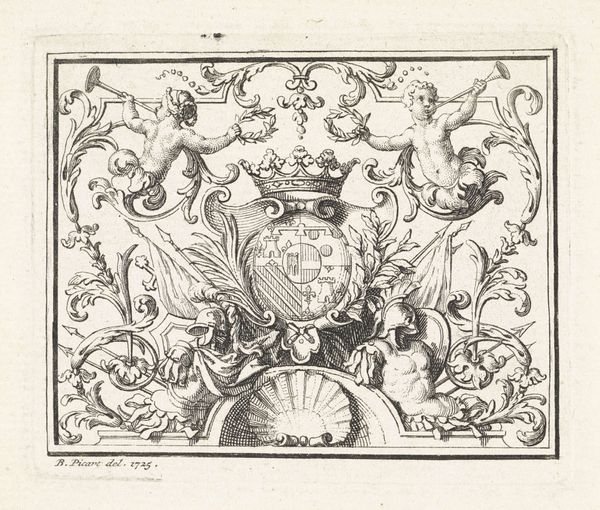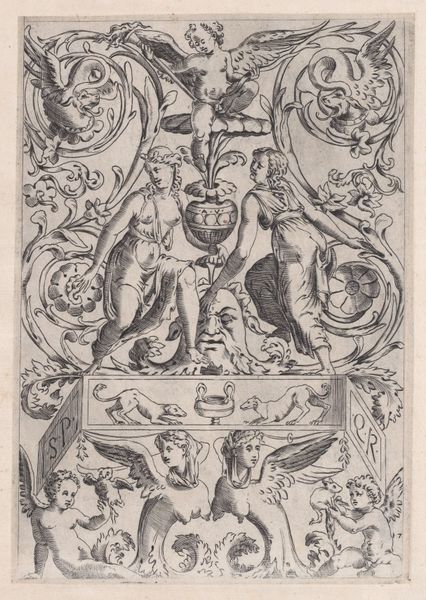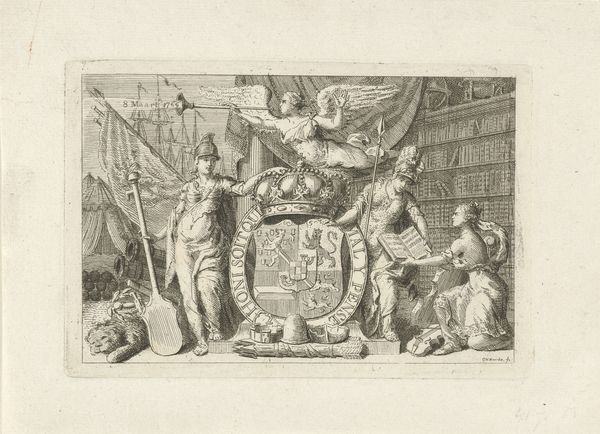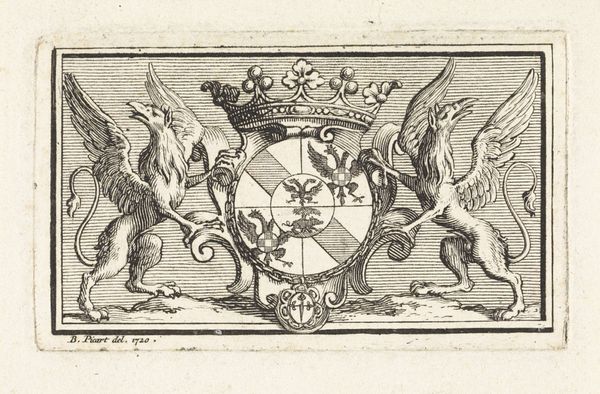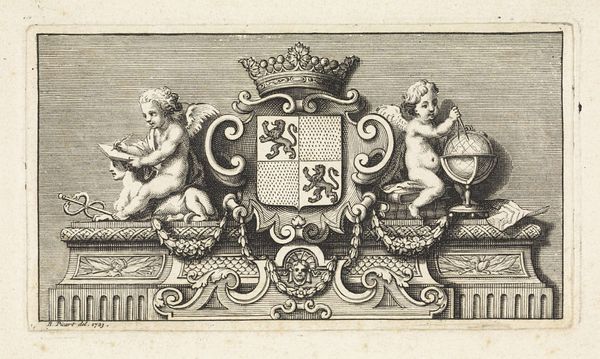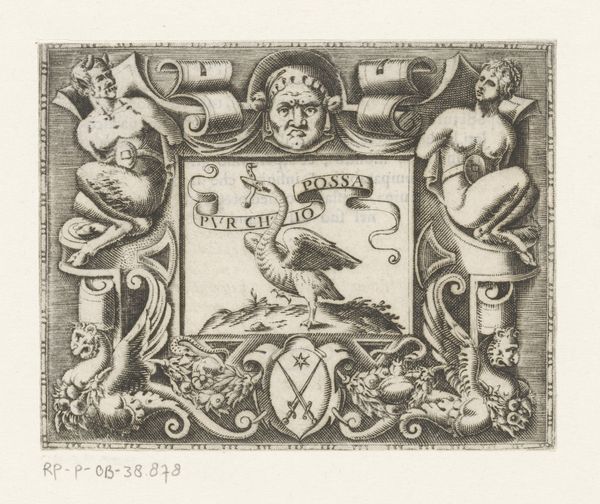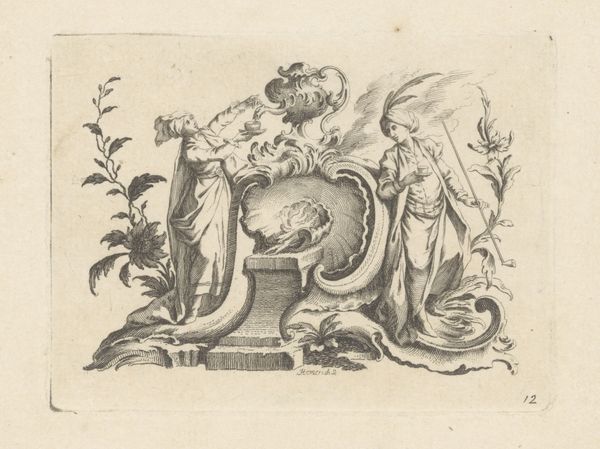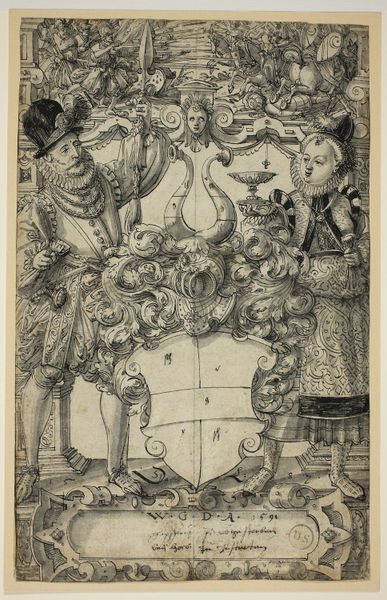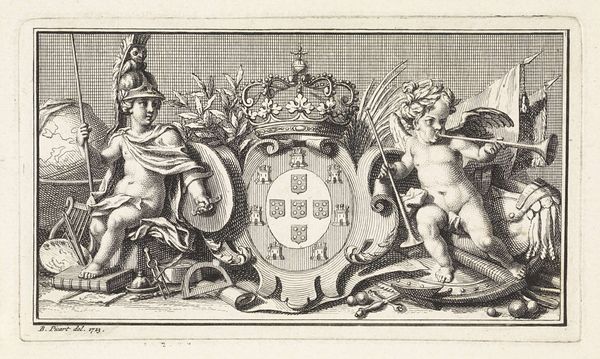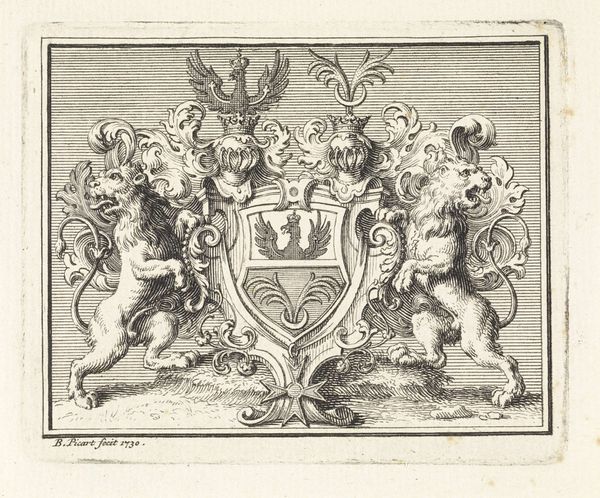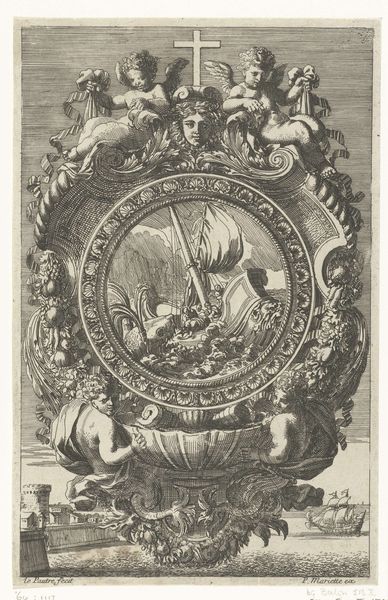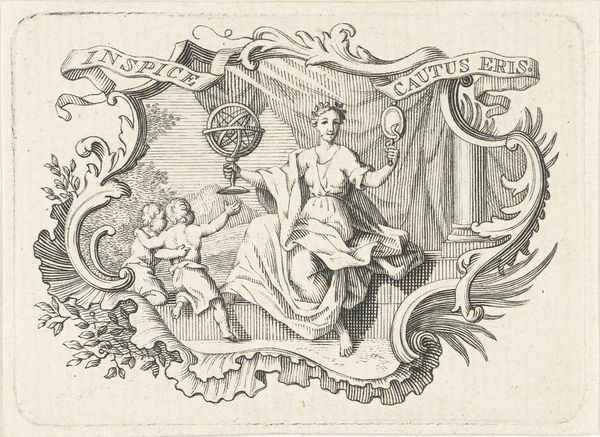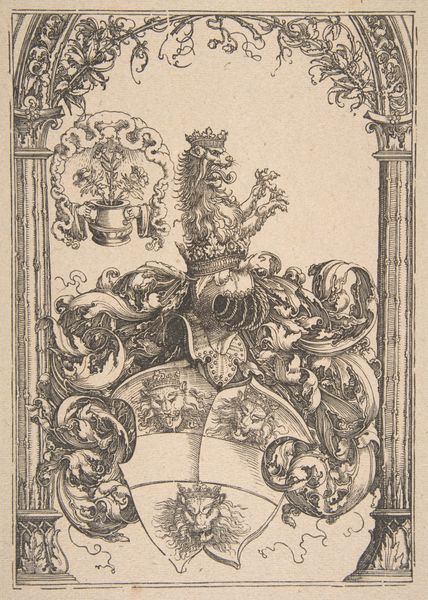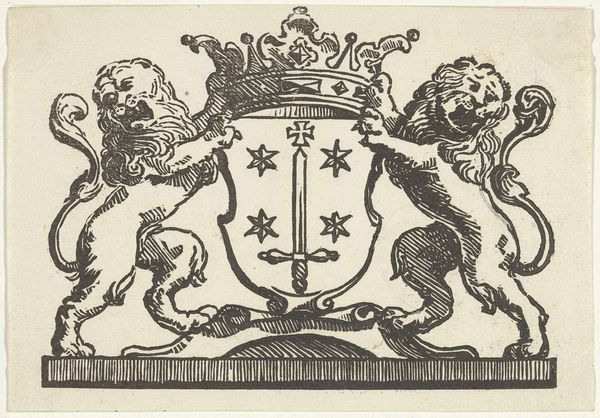
Dimensions: height 89 mm, width 100 mm
Copyright: Rijks Museum: Open Domain
This is an engraving of the Coat of Arms of Willem IV, Prince of Orange-Nassau, made by Johannes van der Spyck in the mid-18th century. The dense matrix of lines was achieved by incising a metal plate. The matrix of lines is all the more impressive because, as an intaglio print, the ink sits *within* those lines; the pressure of the printing press forces the paper to pick it up. Consider the material and the process, and the social context is very important here: the copper would have been costly, the engraver highly skilled. Etching was already a well-established technique by this time. Although prints like this were relatively cheap to produce in multiples, the level of expertise needed to create the plate would have been considerable, and therefore expensive. This kind of image was intended to broadcast status, announcing a commitment to governance, and membership in the aristocracy. What is being represented here is not only the man Willem IV, but the wealth, power and knowledge required to portray him in this way.
Comments
No comments
Be the first to comment and join the conversation on the ultimate creative platform.
